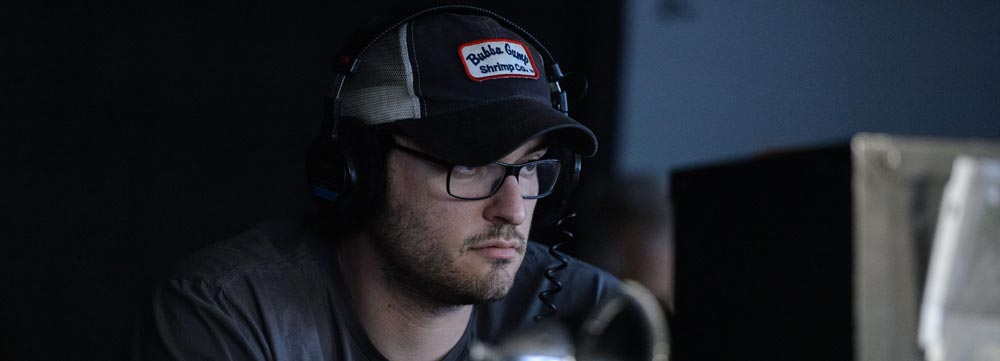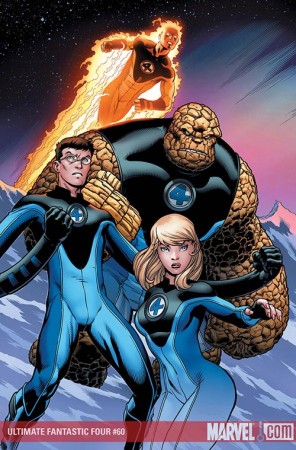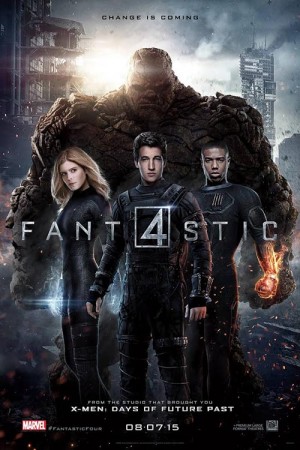 For many in the Indie world, filmmaker Josh Trank has been an inspiration. His character-driven reimagining of the superhero film using a “found-footage”-style made his debut film, Chronicle, a hit with most reviewers earning a super high 85% Rotten Tomatoes score. The film took a more Gothic/horror approach on super “heroes” by looking at teens being granted powers by an alien artifact and how power tends to corrupt, especially among the young.
For many in the Indie world, filmmaker Josh Trank has been an inspiration. His character-driven reimagining of the superhero film using a “found-footage”-style made his debut film, Chronicle, a hit with most reviewers earning a super high 85% Rotten Tomatoes score. The film took a more Gothic/horror approach on super “heroes” by looking at teens being granted powers by an alien artifact and how power tends to corrupt, especially among the young.
Although the Indiewood budgeted film didn’t make Marvel money at the box office for distributor Fox, according to Box Office Mojo, it made more than five times its production budget back, despite being released in the deadland of February ON Super Bowl weekend, no less.
The film propelled the introverted and Indie minded Trank (who’s father was a documentary filmmaker) into the spotlight in a staggering way.
Fox had been looking for a way to reboot their Fantastic Four films before the rights reverted back to Marvel and the overall negative response to their first two tries (which, ironically, would have Johnny Storm played by the Chris Evans, the actor who would later successfully play Captain America for Marvel Studios) showed them they needed a completely new direction to go. Trank’s more horror-inspired take on superheroes in Chronicle must have seemed a godsend, considering how the original Fantastic Four was much more of a horror/monster comic. (The fact that somewhere along the line the choice was made to go with the divisive Ultimate Fantastic Four comics as inspiration–which feature very young versions of the traditionally older protagonists–must have made Trank’s selection seem all the more serendipitous, since Chronicle focused on high school students who gained powers!)
Although Disney’s new management has been avoiding this for the most part (with perhaps the very complicated exception of Avengers‘ Joss Whedon), Hollywood has traditionally had difficulty knowing how to best leverage Indie directors into pre-existing franchises. The need for new blood in the Hollywood studio body is unquestioned, but how do you transfuse that in such a way that it isn’t rejected, damaging the body, rather than healing it? (If you have any question about how traumatizing this can be for indie directors, even when they’re “just” going up to a studio film with modest budgets with people there to help them transition, watch any season of Project Greenlight you can get your hands on!)
We currently have no idea what (if any) safeguards may have been put in to try to help Trank adjust to a rebooted franchise with 10 times the budget of his last film and a pre-existing hate storm from a previous iteration (including the controversial choice to base it on the Ultimate Fantastic Four, the casting for which caused critic John Campea of Collider to dub the film: “The Fantastic Four Babies”).
At first, everything seemed to be going well, as Trank’s comments on focusing on a more horror, Cronenburg-esque interpretation of the material resounded with fans, as did his choice to focus on the family dynamic of the team, over crazy action. (Similar choices for more personal stories have led to critical success for Captain America 2 and, recently, Ant-Man.)
In fact, things were going so well that writer/producer Simon Kinberg (who was hailed as a major part of the success of Brian Singer’s X-men: Days of Future past) seems to have helped get Trank an interview with Disney. The early footage and reports were impressive enough that Disney offered him one of the upcoming Star Wars spinoff films.
There was no question in anyone’s minds that Trank would be the next Chris Nolan.
However, then, things started to come off the rails. Reports of erratic behavior on set and breakdowns during shoots began to circulate. Kinberg was quick to speak up in defense of the young director, but his highly publicized defenses felt a lot more like damage control.
Then, during the recent Star Wars Celebration, Trank failed to show up to the event where he was scheduled to talk about his upcoming Star Wars film. It would be announced that he was very sick and unable to attend.
However, shortly thereafter, Disney would announce, politely, that Trank would be departing Star Wars. Rumors that the reports out of Fantastic Four’s shoots–which now included hiring another director to do reshoots–were proving too troublesome for Disney and they’d decided to move on to a director who was more stable. (Rumors of Trank’s struggles with mental issues are currently unproven, but if there’s any truth to them at all, the picture of a young, potentially brilliant artist being thrown in the deep end without a life preserver becomes more stark. Even more so in the light of later reports which speak to Fox executives pulling three set pieces from the shooting schedule AFTER production had commenced in a crazy attempt to save money after the budget had already been agreed upon.)
Trank would follow up Disney’s announcements by saying that his reasons for leaving Star Wars were due to the heavy toll that Fantastic Four had placed on him and that he needed to do something smaller and more personal. (In this regard, his reasons were almost identical to Joss Whedon who survived Avengers 2, but did so at quite a personal cost and was left publicly embittered by the whole ordeal.)
Amazing trailers for Fantastic Four managed to rebuild waning confidence for the film from fans and press. Unfortunately, this confidence would then be shattered by Fox refusing to grant press screenings for most news organizations until less than 72 hours prior to release–an act that trumpeted Fox’s lack of faith in the film. (It’s a boneheaded move on Fox’s part, because no matter how many problems the film had, refusing press screenings invited more antagonism from the press and appeared as a sign of surrender by the viewing public, who might not have otherwise paid attention to the critics.)
From early reviews, it appears that the film itself mirrors the tale of the film’s entire rumored production narrative. According to the most favorable review I found from Birth.Movies.Death, the first part of the film (before the apparent behind-the-scenes issues seemed to start) were poignant, character-driven storytelling with a subtle mood of dread and apprehension–much like the source material AND much like Trank has shown he likes to direct.
However, things began to go sideways in the middle of the film and, by the final act, it seems as though someone else directed the film, turning it into a poorly-executed CGI extravaganza that was paint-by-the-numbers superhero trope which was painfully out of place with the rest of the film. (As of the writing of this editorial, the Rotten Tomatoes score of this film was 14%.)
While I don’t know Trank personally, this entire tale makes me very sad, especially after reading the story of another introverted filmmaker who had a more gradual assent into Hollyood: George Lucas. (As covered in the book, How Star Wars Conquered The Universe, Lucas would later cause his own problems, but they would at least be on his own terms.)
As I’m not in a part of the country that was granted pre-screening privileges, I’ll have to wait to comment definitively on the film from my perspective. In the mean time, if you’d like to read the review from Birth.Movies.Death, click here.
If you’ve seen the film or would like to comment on the whole situation, leave your comments below!
After Josh Trank tweeted his disgust with the film that was released under his name, Entertainment Weekly printed the following story which gives possible insight into more of the behind-the-scenes drama going on.
Josh Trank Photo. (Courtesy of Collider.)
Fantastic Four Poster. (Courtesy of Fox Films.)
Ultimate Fantastic Four #60 Image. (Courtesy of Marvel Comics.)


